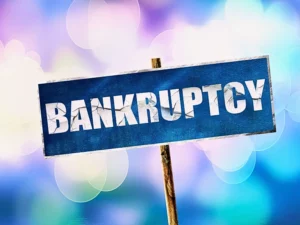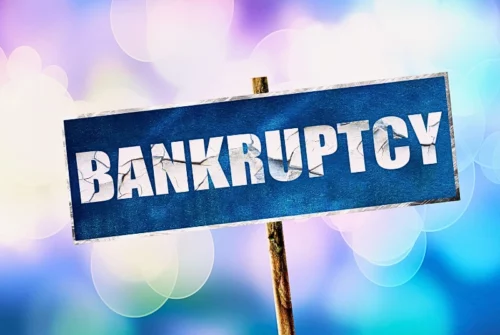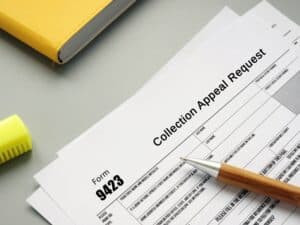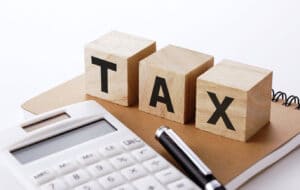
Can You Discharge an SBA Business Loan in Bankruptcy in Nevada?
You can discharge an SBA business loan in bankruptcy in Nevada. However, certain factors can affect their dischargeability, including whether you pledged collateral for the loan, personal guarantees you’ve made, and if there’s evidence of fraud related to the loan. If you’re struggling with debt from an SBA business loan, it’s essential to understand how bankruptcy affects SBA loans and the various factors involved.

If you’re considering filing for bankruptcy in Nevada, contact the experienced bankruptcy attorneys at
Is It Possible to Discharge an SBA Business Loan in Bankruptcy in Nevada?
SBA business loans are provided by the United States Small Business Administration (SBA). The SBA is a federal agency that provides loan assistance to qualified small business owners through financial institutions participating in the program. The SBA makes it easier for small business owners who can’t obtain credit or financing through traditional means on reasonable terms to access the funding they need. You can use an SBA loan to start or expand a business or keep it afloat during hard times.
SBA loans have flexible conditions and favorable terms, including reduced collateral requirements, lower interest rates, and more favorable repayment terms. Unfortunately, financial challenges can arise and make it difficult for a borrower to make the required payments when the repayment period starts. This could leave business owners confused over what could happen if they face bankruptcy.
An SBA loan can be discharged in bankruptcy. Defaulting on the loan without doing anything could have serious consequences. The lender can pursue legal action against you or your business. The lender could seize collateral, garnish your wages, and place liens on property owned by the business or yourself. Being a government entity, the SBA can send your case to the U.S. Treasury for collection. The government could garnish tax refund checks, bank accounts, and
A Chapter 7 bankruptcy liquidates and clears your debts. That could leave you wondering, “
Debtors who can’t qualify for a Chapter 7 bankruptcy or have non-exempt assets they want to keep can file a Chapter 13 bankruptcy. In a Chapter 13 bankruptcy, you retain possession of your assets while paying your debt over a specific period through a manageable court-approved repayment plan. So,
How Bankruptcy Impacts Your Ability to Discharge an SBA Loan in Nevada
The approach to handling an SBA loan can vary depending on the type of bankruptcy you pursue.
How a Chapter 7 Bankruptcy Affects SBA Loans
Chapter 7 bankruptcy can discharge SBA loans if they’re not secured by collateral. However, if you pledged collateral for the SBA loan, such as your home, the lender can seize the pledged assets and use them to repay the loan. Pledging collateral gives the lender a voluntary lien on your property. Chapter 7 bankruptcy doesn’t erase voluntary liens. The lien on pledged assets may remain even after your Chapter 7 bankruptcy case ends, allowing the lender to use its lien rights to take the collateral used for the loan through foreclosure and repossession after your bankruptcy case closes.
How a Chapter 13 Bankruptcy Affects SBA Loans
There were
When you file for Chapter 13 bankruptcy, your unsecured or secured SBA loan can be incorporated into a 3-5 year repayment plan. You’ll make payments toward your SBA loan debt and other debts over those years, and in the end, the remaining balance on your loan may be discharged. A Chapter 13 reorganization plan gives you a chance to pay off an SBA lien against your property and keep your assets. Defaulting on the repayment plan could result in the SBA loan not being discharged and you losing your assets.
Other Factors That May Affect SBA Loan Dischargeability
Several other factors can affect your ability to discharge an SBA business loan in bankruptcy.
Personal Guarantees
When you apply for an SBA loan, you may be required to sign a personal guarantee. This legally binding document can make things more complicated, as it makes you personally responsible for repaying the business debt in case your business defaults. A personal guarantee extends your liability beyond the business. You’ll be obligated to pay the loan from personal income or assets, even if your business is unsuccessful and has filed for bankruptcy.
Fraud or Dishonesty
Fraudulent or dishonest behavior related to an SBA loan can make SBA debt non-dischargeable in bankruptcy. The creditor can file an adversarial proceeding in response to a debtor’s bankruptcy filing and ask the court to find the SBA debt non-dischargeable. The common basis for a lender filing an adversarial proceeding is there was fraud or misrepresentation when obtaining the loan.
The lender will claim to have incurred losses due to the debtor’s fraudulent or dishonest behavior and provide the court with documentation to prove the dishonesty or fraud. Examples of dishonest or fraudulent behavior include:
- Taking out a loan with no intent to repay it
- Providing false income information or financial statements
- Misapplying funds for uses other than the allowable business operations
- Transfer of property with the intent to conceal it from the bankruptcy court or creditors
- Failure to disclose certain assets or information
If the creditor manages to prove that you engaged in fraudulent or dishonest behavior, the court may deny the discharge of the SBA loan. In such a case, you may remain liable for repaying the SBA loan even after bankruptcy. Additionally, an adversarial proceeding could lead to criminal charges. It’s important to be truthful and transparent when applying for and using SBA loans.
Why You Should Consult an Attorney
Bankruptcy may be an ideal debt relief option if you’re struggling with an SBA loan. However, there are special considerations you’ll have to make if filing for bankruptcy for an SBA business loan discharge.
Navigating through SBA loans and bankruptcy can be complicated. You’ll need to understand your circumstances to determine whether it’s viable to file for bankruptcy and how to best approach handling your SBA loan in bankruptcy. You’ll need to review your loan documents meticulously for details like liens on personal or business assets.
If you file for bankruptcy to discharge an SBA loan, the government may require you to provide proof of how you used the funds in your business. Inadequate records or misrepresentations of your loan usage and financial situation could result in the court denying the discharge and criminal liability. Having clear and organized documentation is critical.
All these factors make consulting an experienced bankruptcy attorney necessary. A knowledgeable attorney will evaluate your situation, review your documents, and go over each available option to help you understand each option’s pros, cons, and potential consequences. He or she will help you see the optimal solution for your situation.
A
Bankruptcy attorney Taylor Randolph has nearly 20 years of experience helping individuals and businesses in Nevada facing legal and financial challenges.





